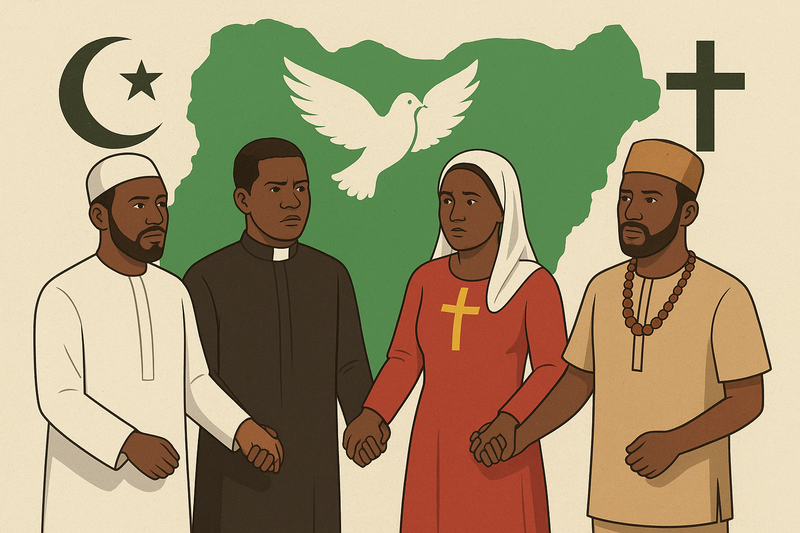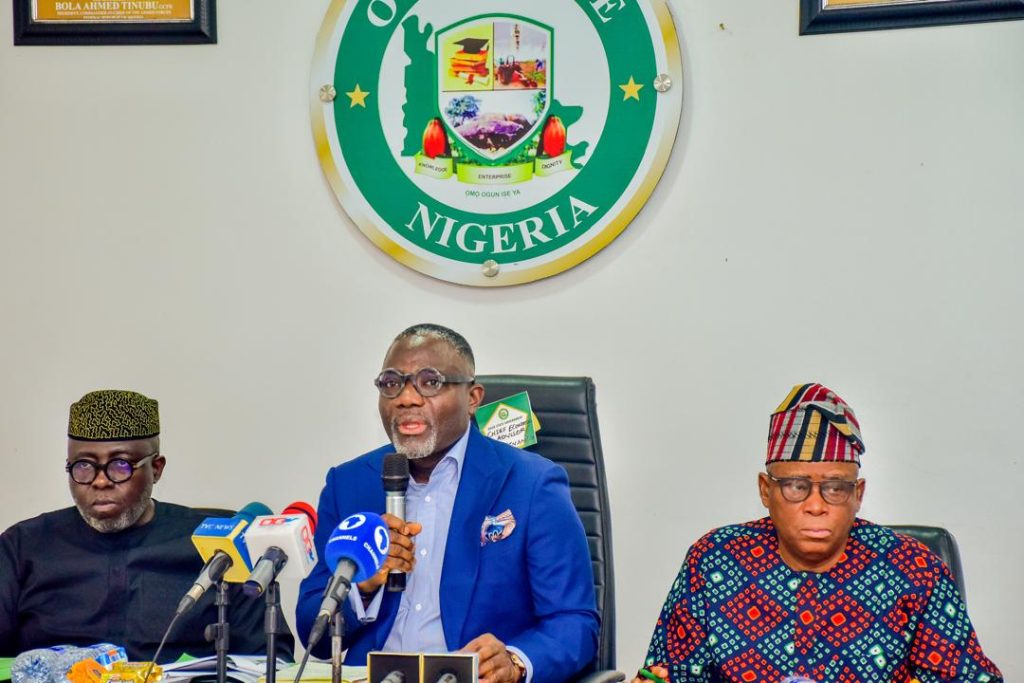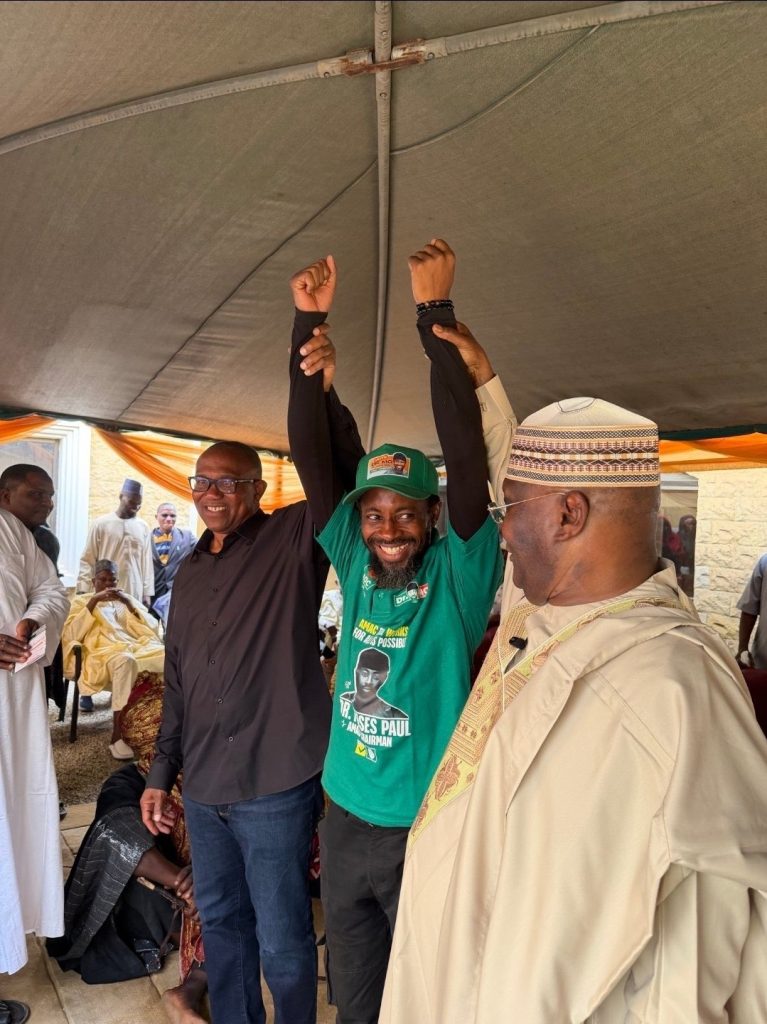Breaking News
Lack of Neutrality In Religious Matters Is a Problem in Nigeria – Faith Leader

ABUJA — Faith leaders and human rights advocates have warned that Nigeria’s failure to maintain neutrality in religious matters is undermining freedom of religion or belief (FoRB) and fuelling violence against citizens of different faiths across the country.
They spoke at a one-day roundtable organised by the Christian Awareness Initiative of Nigeria (CHAIN) in Abuja, themed ‘Building Synergy Among Faith-Based NGOs for Freedom of Religion or Belief (FoRB).’
The event featured presentations from Prof. Sam Amadi, former Chairman of the Nigerian Electricity Regulatory Commission (NERC) and Director of the Abuja School of Social and Political Thoughts; Revd Dr Gideon Para-Mallam, President and CEO of the Para-Mallam Peace Foundation; Barr. Joseph Danboyi, a human rights lawyer; and Revd Joseph Hayab, CEO of CHAIN, amongst others.
The speakers expressed concern that the Nigerian state’s close entanglement with religious interests had weakened its ability to act as a neutral arbiter and protect citizens impartially.
They urged the government to strengthen the rule of law, promote equal protection for all, and prosecute those responsible for faith-related violence.
Prof. Amadi said Nigeria could not achieve genuine freedom of religion or belief until the state frees itself from religious control and upholds constitutional neutrality.
“The challenge is that the Nigerian state appears so beholden to religious and political interests that it struggles to protect its citizens impartially. Religion now influences the state, rather than the state remaining autonomous and neutral,” Amadi said.
He explained that the introduction of religious laws in parts of the country since 2000 had complicated Nigeria’s constitutional structure and raised questions about the equality of citizens before the law.
“When a state allows religion to dominate its operations, it risks infringing on the religious freedom of some citizens, whether Christian, Muslim, or atheist,” he added.
Amadi proposed the establishment of a National Council on Freedom of Religion or Belief to independently investigate and address violations.
“State neutrality means not inhibiting religion but also not enabling it. The state must serve every citizen, irrespective of creed,” he said.
Delivering his message virtually, Revd Dr Gideon Para-Mallam described the global and national decline in religious freedom as worrying, calling for joint efforts to end violence committed in the name of religion.
“Killings under the pretext of blasphemy or religious disagreements must be condemned and investigated. Justice must be demanded jointly by Christians, Muslims, and other faith communities,” he said.
Para-Mallam also stressed the need for data-driven advocacy, noting that both Christians and Muslims have suffered losses from recurring violence.
“Between 2019 and 2023, thousands of Nigerians, including 16,769 Christians and 6,235 Muslims, have lost their lives. These figures demand urgent, sincere action from government and faith leaders,” he added.
Human rights lawyer, Barr. Joseph Danboyi, examined the impact of blasphemy laws on FoRB, warning that they discourage open debate and civic participation.
“Such laws shape how Nigerians think and speak, often leading to self-censorship and fear. This undermines the open discourse that democracy requires,” he said.
He noted that academic and creative expression in Nigeria often faces invisible boundaries driven by fear of religious backlash, resulting in intellectual stagnation.
In his remarks, Revd Joseph Hayab, CEO of CHAIN, said ending religious killings would be the most effective way to rebuild public confidence in governance.
“If you want to stop anything, stop the killings. When victims and their families see that those who attack others are being prosecuted, confidence in the system will be restored,” Hayab said.
Other stakeholders at the roundtable called for government and religious leaders to recommit to justice, equality, and peaceful coexistence through stronger institutions and respect for the rights of all citizens.
“Until the Nigerian state is structured to serve every citizen without bias, genuine freedom of religion or belief will remain a challenge,” they stressed.
Breaking News
Ogun State Government Announces Pension, Gratuity Backlog Clearance Between 2012 and 2020

The Ogun State Government has announced the clearance of pension and gratuity arrears owed to workers who retired between 2012 and 2020, reaffirming its commitment to the welfare of retirees.
The Economic Adviser and Commissioner for Finance, Dapo Okubadejo, disclosed this on Tuesday during a media parley organised by the Ogun State Ministry of Budget and Planning.
Okubadejo explained that the backlog was linked to the Defined Benefits Scheme, under which retirees receive monthly pension payments, stressing that the present administration of Governor Dapo Abiodun has not defaulted on pension obligations since assuming office.
“Since the inception of this administration, we have not missed a single month of pension payment. What we inherited were arrears tied to the Defined Benefits Scheme,” he said.
According to him, annual pension payments rose from ₦6.7 billion in 2019 to ₦20 billion in 2025, with projections showing a possible increase to ₦40 billion by 2029.
He disclosed that the state had so far paid ₦23.3 billion in gratuities covering retirees from 2012 to 2020, alongside ₦32.8 billion in outstanding gratuities for local government retirees inherited by the administration.
Okubadejo added that between 2019 and July 2, 2025, the state disbursed ₦93.26 billion in pensions under the Defined Benefits Scheme and ₦94.78 billion to local government pensioners.
He assured that the remaining backlog would be cleared as Internally Generated Revenue (IGR) continues to improve, noting that over 300 workers who retired in July 2025 are currently receiving six-month palliatives pending the completion of their pension documentation.
The commissioner also described the newly approved Additional Pension Benefits (APB) as the first of its kind in Nigeria, adding that amendments to the state’s pension law would be pursued to formally integrate the scheme.
On the state’s fiscal outlook, Okubadejo revealed that the 2026 budget increased from ₦1.054 trillion in 2025 to ₦1.668 trillion, while Ogun’s economy expanded from ₦3.5 trillion in 2019 to ₦18.96 trillion in 2026.
He added that IGR grew from ₦50 billion in 2019 to ₦240 billion in 2025, with projections of ₦512 billion this year.
Also speaking, the Commissioner for Budget and Planning, Olaolu Olabimtan, said the 2026 budget reflects strong fiscal reforms, noting an 85 per cent budget execution rate in 2024 and sustained financial stability.
Other commissioners highlighted sectoral achievements, including massive road construction, increased healthcare funding, rail extension plans, education support programmes, and expanded housing projects across the state.
Breaking News
2027 Election: Vote for Change – Peter Obi Urges Nigerian People

African Democratic Congress, ADC, chieftain, Peter Obi, has urged Nigerians to focus on the country’s future and vote for a change in leadership.
Obi spoke at a meeting with Hausa/Fulani chiefs in Abuja on Wednesday.
“We have to talk about the future of our country. All of you know what is happening to our country today. That’s why we are campaigning that you vote out this government,” he said.
He described the situation in Nigeria as dire, citing insecurity, hunger and hardship.
“today we have insecurity across Nigeria. We have hunger across Nigeria. We are suffering across Nigeria. The only thing that is working in Nigeria today is bad news. Every morning you wake up is bad news,” Obi stated.
The former Labour Party presidential candidate said a new administration would prioritize social services.
“We’re urging you to vote for a change and bring a new Nigeria, where our children will be in school. Our hospitals will work,” he added.
Obi also questioned government spending priorities, particularly in the health sector.
“today, if you’re sick in Nigeria you’re praying to Almighty God because we’re now in a country where our president spends 360 billion to buy and refit his plane and spends 36 million in capital vote for the Ministry of Health. There’s nothing working,” he said.
He appealed to Nigerians to use their votes to usher in what he described as a “new Nigeria” focused on improving citizens’ welfare and restoring key public services.
-

 Breaking News2 months ago
Breaking News2 months agoBreaking News: Nigerian Air Force Reportedly Kills 750 Terrorists in Borno State
-

 Breaking News3 months ago
Breaking News3 months agoTerrorists Want ₦2m ‘levy’ in Katsina Community Despite Peaceful Agreement
-

 Breaking News4 months ago
Breaking News4 months agoEx-EFCC Exhibit Keeper Kaduna Zonal Directorate, Allegedly Steals ₦22m
-

 Breaking News5 months ago
Breaking News5 months agoNiger Delta Group hails Tinubu, NUPRC for ₦373bn host community fund and 536 life-changing projects
-

 News In Diaspora1 month ago
News In Diaspora1 month agoNigerian JTF Arrests Woman Supplying Drugs to Boko Haram
-

 Breaking News3 weeks ago
Breaking News3 weeks agoNew Young Players are Coming in Super Eagles – Ibrahim Gusau to Fans
-

 Business3 weeks ago
Business3 weeks agoBREAKING: No Fewer Than 28 Ships to deliver Petrol, other Commodities at Lagos Ports
-

 Breaking News3 weeks ago
Breaking News3 weeks agoEmergency: Arik Air Flight Landed at Benin Airport
